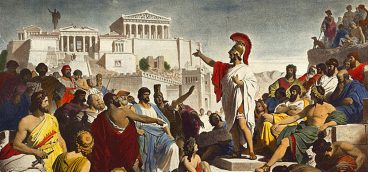Debating IQ

For readers who missed part 1 of this series of posts, I am summarizing a fictional novel written almost forty years ago.
As Dr. Michael Solomon knocked cautiously on the door of Grace’s apartment, he was well aware that Grace was furious with him. Sure enough, when Grace’s face showed in the door window, she looked like she’d been chewing nails.
“It’s all right, Grace,” Solomon called through the door. “It’s safe to let me in, I’m wearing my bulletproof vest!”
Laughing in spite of herself, Grace unlocked the door and opened it, saying, “Dr. Michael Solomon, you are the most irritating man I’ve ever known!”
What had irritated Grace was Solomon’s eight-word response to all the hard work and searing insights in her position paper: “This is the worst work you’ve ever done.”
While Grace was making tea—infuriatingly, she made it from scratch, scalding the kettle, pouring loose tea into the pot, straining it—Solomon said, “Grace, your problem is you’ve spent way too much time on university campuses. You think everybody in America is smart and well-educated.
“And that’s true enough here in Hyde Park. Academic types may be in many ways annoying human beings, but they are certainly smart and well-educated. But Hyde Park isn’t the real world. Do you have any idea what percentage of the American population has even a bachelor’s degree?”
“Half?” replied Grace, being intentionally dense.
“Very amusing. Try 9 percent.” (This was in the late 1960s.)
“Your point being, Dr. Solomon?”
“Just this—speaking for myself, and I’m sure I speak for just about everybody else—I would rather be governed by the people elected by our hopelessly defective voting public than be governed by random fools.”
“May I quote you to the effect that the average American citizen is a fool?”
“I was exaggerating for effect. Look, Grace, you’re the lawyer and the political scientist, I’m just a poor psychology professor from Brooklyn. But I do know something about human intelligence.”
Solomon wasn’t exaggerating his credentials. A decade earlier his career had been on the skids and he’d been perilously close to becoming an academic pariah. But then his father, Nate, had died suddenly and, as Nate’s only heir, Michael Solomon became a wealthy man.
Solomon bought a sprawling estate along the shore of Lake Michigan, near the town of Fort Sheridan, and established what he called the Institute for the Study of Human Capability (ISHC). Once the main house and outbuildings had been remodeled, Solomon resigned from the University of Chicago and, taking three assistant professors with him, formally opened the Institute.
Over the next few years Solomon recruited several full professors from other universities, along with their best assistant professors and graduate students. Very quickly ISHC became, by broad consensus, the premier research faculty in the world devoted to human intelligence research.
By the time Michael sat down to tea with Grace Atkinson that evening he was clearly the top scholar in his field. If you wanted to hold a conference anywhere in the world on human intelligence and you didn’t have Dr. Solomon on your agenda—or at least a few of his top people—you should rethink what you were doing.
But Grace was unmoved. “Who was it,” she said, “who said he would rather be governed by the first two thousand names in the Boston phone book than by the Harvard faculty?”
“William F. Buckley. It’s an understandable sentiment, but Buckley never met those two thousand people.”
“Ah, touché, Doctor!”
“What I’m saying, Grace, isn’t a popular opinion. It sounds elitist and obnoxious. But the simple fact of the matter is that human capability varies wildly. We can pretend it’s not true, we can pretend there are all sorts of “intelligences” out there, but facts are facts. I can cite four or five hundred journal articles if you don’t believe me.”
Grace walked to the cupboard and came back with a small bottle of vodka, the kind shaped like a hip flask, and poured a heavy jigger into her tea. Michael’s eyes went wide, but Grace ignored him and poured a jigger into his tea, too. “Think of it,” she said, “as a Long Island Hot Tea.”
For the next several hours it was like old times for Grace and Michael before the latter moved up to the lake shore. They drank vodka-spiked tea and talked about the true meaning of democracy. They talked about the true meaning of human capability.
At 11 p.m. Grace said, “The long and short of this, Michael, is that I’ve come to believe that true democracy, the kind that people can actually trust, has to be representative of the underlying population, and the only way that can happen is by choosing public officials by lot, what is sometimes called ‘sortition.’
“You, on the other hand, believe that sortition represents the road to perdition because there are too many, shall we say, not-smart-enough people out there, and we would end up with a government-by-the-incompetent. Does that size it up correctly?”
“Good enough for government work.”
Grace laughed, but said, “Okay, then, how about this. Every society is governed by some sort of aristocracy or oligarchy, whether people have the vote or not. So if we’re doomed as human beings to be governed that way, why not an aristocracy of the intelligent?”
“Why not, indeed?” Solomon replied.
“Everybody already takes IQ tests, so we know who’s smart and who isn’t, regardless of whether they went to college. Let’s select our government officials from among that group of smart people.”
But Michael Solomon was shaking his head. “It won’t work, Grace. IQ tests accurately predict success, but only for majority populations. They are likely biased against disadvantaged groups, and that ruins your idea.”
“You’re saying that just as people criticize the Constitution because it was drafted by men who weren’t truly representative, so, too, they’ll criticize the use of IQ tests because they don’t treat people equally.” Dr. Solomon nodded. He’d decided he liked Long Island Hot Tea.
“Okay, what’s the solution to biased IQ tests?”
“I’m glad you asked me that question,” Michael said.








